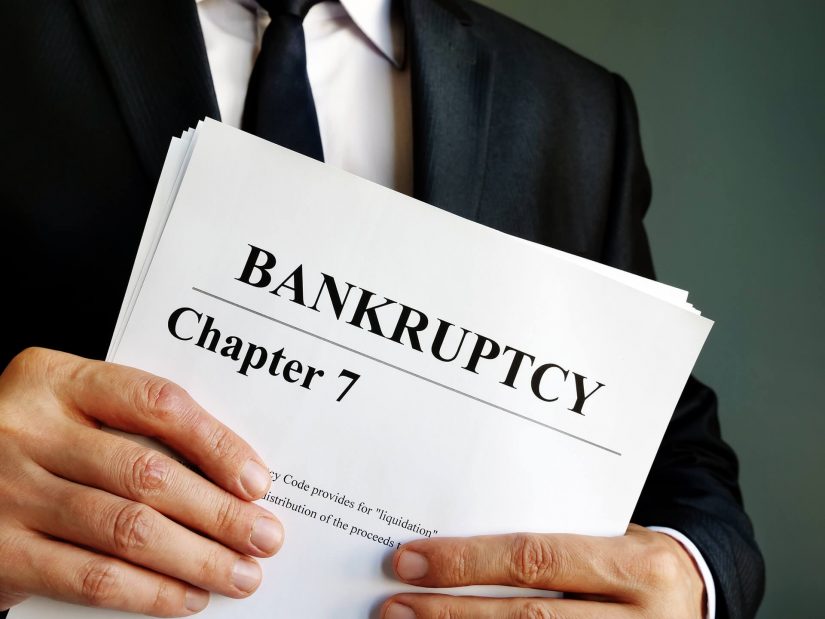Chapter 7 Bankruptcy Attorney in Denver

Filing for a Chapter 7 Bankruptcy in Denver, Colorado can be a very effective way to handle debt. The purpose of a Chapter 7 Bankruptcy is to allow individuals who are honest but have had a financial setback to get a fresh start by getting rid of (“discharging”) most of their unsecured debt.
How to Begin Chapter 7 Bankruptcy Proceedings
The Chapter 7 process begins by meeting with a Denver Bankruptcy lawyer, usually by having a short phone conversation. During the initial consultation, we will discuss the big picture for you financially, and determine the best course of action. We will discuss both bankruptcy and non-bankruptcy options. If you choose to do a Chapter 7 Bankruptcy in Denver, Colorado, I will then work with you to establish a plan of action, including when to file and what things to do to prepare for filing so that your case goes as smoothly as possible. There are many actions that people take in normal life that can cause issues in a bankruptcy. I will advise you to help make sure you are aware of the “dos” and “don’ts” to protect your assets, and to help you avoid getting entangled in difficult legal situations once your case is filed. Like any other area of the law, the bankruptcy code is complex and it is important to select an attorney who has substantial experience with it to make sure you can get rid of your debt, and protect your assets in the process.
Steps in a Chapter 7 Bankruptcy
Once we have planned when to file and have gone over the dos and don’ts, I will draft your Chapter 7 Bankruptcy Petition. I will then meet with you to review and sign the petition. Most bankruptcy case filings range from about 50 to 90 pages, so it is important to get them drafted correctly to avoid your case being rejected. I will then file your petition and all of the necessary supporting documents with the Colorado Bankruptcy Court. On the date that you file your case, all collection efforts, including creditor phone calls, creditor letters, and even pending lawsuits, must immediately stop (with some very rare exceptions) because an “automatic stay” goes into effect immediately upon the filing of the case. The case will then proceed and any creditors may only communicate with you through your Denver Bankruptcy attorney.
The 341 Creditors Meeting
You will attend a hearing called a “341 Meeting of Creditors”. I will represent you at that hearing and will make sure that we prepare and submit the proper documents to the Bankruptcy Trustee, I will prepare you for what questions to expect, and will make sure that you are otherwise prepared. A Bankruptcy “Trustee” will ask you questions and after the hearing, I will work with the Trustee to make sure that your case gets completed successfully. Approximately 61-70 days after that hearing, if the legal requirements have been met, you will receive an “Order of Discharge”, which is a federal court order telling your creditors that they can no longer attempt to collect debt from you (with some exceptions like student loans, domestic support obligations, some taxes and some other rare debts). At that point, those discharged debts are behind you and you can have a fresh start and can begin building for the future.
Benefits of Filing a Chapter 7 Bankruptcy – Don’t wait too long!
It’s important to understand that if you are behind on payments to creditors, delaying speaking with a bankruptcy attorney could be detrimental. For instance, if you own your home and it goes into foreclosure, you will eventually be evicted by the bank. But if you file for Chapter 7, the court will issue an automatic stay, which prevents the bank from seizing your home while the stay is in effect. This also applies to vehicles and other leveraged assets. Similarly, if a creditor files a lawsuit to collect a debt from you, the creditor could get a judgment, which they can then use to garnish your wages, freeze your bank accounts and/or put liens on your house. With some exceptions, once a lien is placed against your house, even a bankruptcy cannot remove it. That is why it is important to speak with a Colorado Bankruptcy Lawyer as soon as feasible if a creditor has served you with a summons and complaint to appear in court before it is too late. The automatic stay that comes as soon as a bankruptcy is filed will also stop creditors from bothering you or contacting you at work. Once the Chapter 7 Bankruptcy is complete, your debts will be discharged and you will have a fresh start.
Frequently Asked Chapter 7 Bankruptcy Questions

People who file for Chapter 7 Bankruptcy usually have many questions for their attorneys. These are some of the most common questions that Denver Chapter 7 Bankruptcy attorneys hear:
Can I keep any property in Chapter 7?
Yes, there is a list of exempt property. The most significant is the equity in your home. You can keep up to $250,000 in most situations and $350,000 if you or your spouse is disabled or age 60 or older. The motor vehicle amounts are $15,000 in equity for up to 2 vehicles or $25,000 if you are age 60 or older or are disabled. There are other exempt assets that your Denver Chapter 7 Bankruptcy lawyer can discuss with you.
What debts are non-dischargeable?
There are debts that you will continue to owe even after a Chapter 7 bankruptcy. Non-dischargeable debts include most student loans, alimony, child support, some taxes, fines or penalties owed to the government, obligations for certain alcohol-related personal injury awards or settlements, and more. Speak to your Chapter 7 Bankruptcy lawyer about your debt.
What if I make too much money to file for Chapter 7?
There is a means test that sets an upper limit on who may file Chapter 7 bankruptcy and it varies by state. If you have a regular flow of income and you don’t qualify for Chapter 7, you may be able to still obtain bankruptcy relief by filing under Chapter 13, which allows you to make payments through a three-year to five-year payment plan.
Denver Bankruptcy Lawyer for Chapter 7
A Chapter 7 discharge is a very powerful tool and a great way to address debt that you cannot afford to pay. The Chapter 7 process is designed to allow you to get the benefit of relief from your unsecured debts, and even from things like a vehicle payment that is too high. In exchange for this benefit, the Court assigns a Bankruptcy Trustee to work for your creditors to try to get some funds back to them by liquidating your assets. However, because of “exemption” laws, the vast majority of your assets, and in many cases all of your assets, will be protected and will not have to be turned over to the Trustee, as long as the bankruptcy paperwork is done properly. This is one of my primary jobs as your lawyer; to protect your assets by planning to the extent possible and by making sure we are properly listing every asset and every exemption available under the law.
If you’re unable to meet your monthly obligations, Chapter 7 might be your best option. Call our Denver office today.

